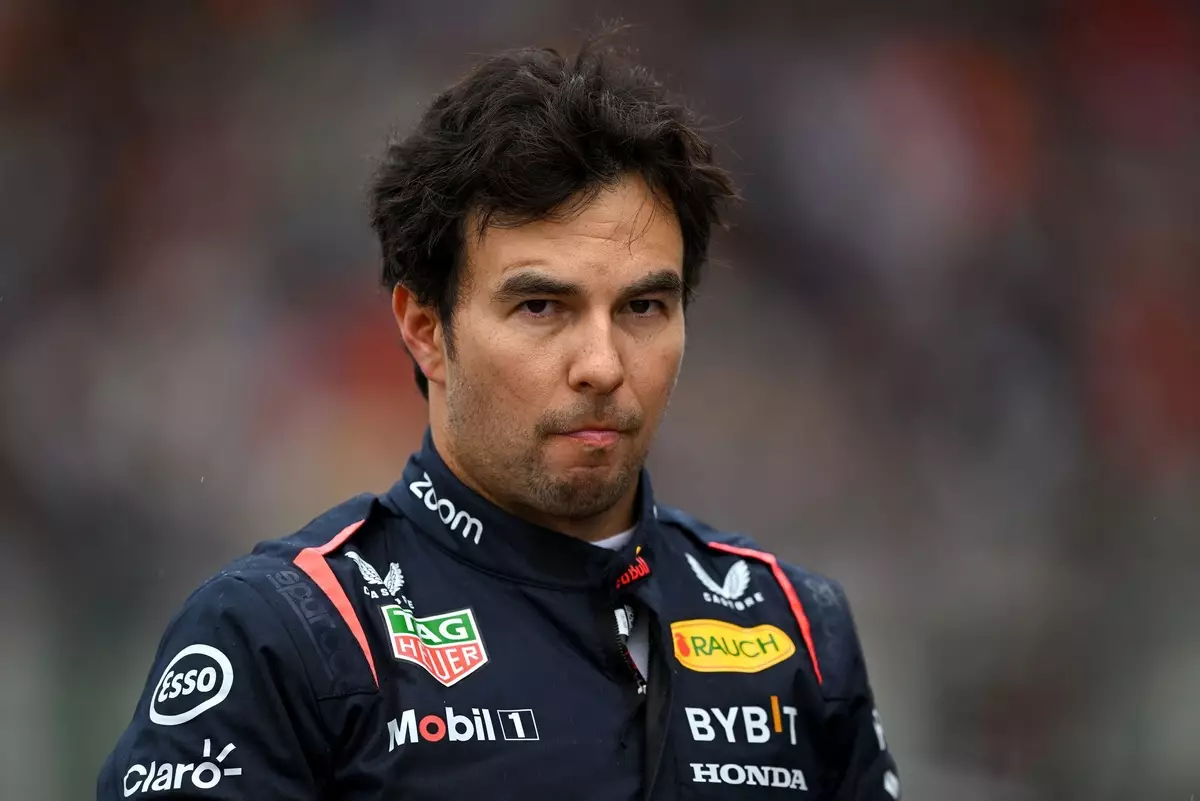The atmosphere within a Formula 1 garage is often likened to a pressure cooker, where immense expectations and fierce competition create a mixed recipe of thrill and anxiety. For Sergio Perez, this pressure became palpably toxic during his tenure at Red Bull, particularly in the latter half of the 2024 season. Perez recently opened up about his experiences during this tumultuous period, highlighting a myriad of factors contributing to his uncomfortable existence within the team. His insights into the environment conjured by Red Bull encapsulate a significant part of the behind-the-scenes dynamics that can make or break a driver’s career.
When a high-profile driver like Perez faces an unexpected split from a dominant team like Red Bull—particularly after securing a contract extension—it raises eyebrows. The Mexican racer revealed that the pre-existing tensions were exacerbated by team dynamics and external pressures, which created an unstable environment. According to Perez, the team failed to shield him from the surrounding noise regarding his performance, which only seemed to escalate with each passing race. The failure of Red Bull to adequately manage these expectations highlights a crucial gap in team leadership and communication, an oversight that can cripple any athlete’s performance.
The Heavy Burden of Expectations
The 2024 season proved challenging for Perez, as he endured unyielding scrutiny and stress that stemmed from not just race outcomes, but also the ever-looming specter of his future within the organization. He articulated how, despite a signed contract securing his position, whispers about his job security filled the airwaves. The incessant chatter surrounding his future took a toll on both him and the crew, a sentiment that reveals the often-ignored human element behind elite sports. While teams certainly aim for high performance, it is crucial to understand that relentless pressure can serve as a double-edged sword.
The fact that Red Bull did not publicly affirm Perez’s place within the team is a particularly glaring misstep. The team’s silence on his contract status led to speculation and uncertainty, which, in Perez’s view, undermined not just his morale but also hindered the performance of the engineers and support staff under his wing. Pressure in motorsport isn’t merely about external expectations; it’s also about the internal dynamics that play out when a driver feels unsupported. Ironically, it was the team that created the very atmosphere of fear and anxiety that ultimately limited their collective output on track.
The Aftermath: Reflection and Regret
In the wake of his departure, which was marked by controversial statements from team advisors and management, the sad irony of the situation is that Red Bull’s management appears to be re-evaluating its stance. Perez mentioned through his discussions that people within the team expressed regret over their decision to let him go—an acknowledgment that he wasn’t simply a scapegoat for their challenges. Understanding that an organization capable of winning championships can fail to maintain an athlete’s well-being underscores the complexities of Formula 1 as both a sport and a business.
The subsequent struggles of Perez’s replacements illustrate another layer of chaos. Red Bull’s choice to replace him with Liam Lawson and then Yuki Tsunoda has not resulted in the kind of success they anticipated. The inability of the new drivers to achieve expected results is a testament to how vital consistent performance is to a team’s overall achievements. It poses an essential question: could Perez have delivered better results had he been nurtured and supported through his difficulties?
The Legacy of Innovation and Change
For his part, Perez pointed to wider strategic pitfalls that coincide with the leaving of key personnel like Adrian Newey. His departure from Red Bull arguably brought about a turning point in the team’s innovative edge, one that is crucial for maintaining competitiveness in such a high-stakes environment. Perez’s observation sheds light on the transformative role that leadership and vision play in determining a racing team’s trajectory.
As fans and analysts continue to dissect the implications of Perez’s tenure at Red Bull, his candid reflections remind us that the world of Formula 1 is not solely about speed and skill. It is deeply tied to human emotions, team dynamics, and the sometimes fragile fabric of support that can ultimately make or break a driver’s career.

